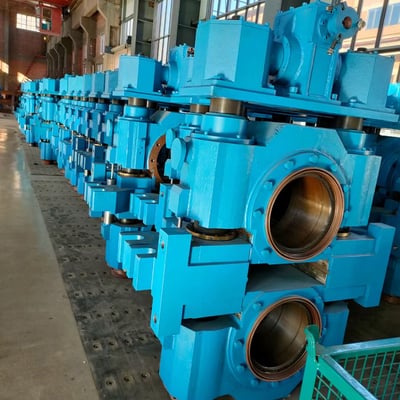How to Improve the Quality of Rolling Mill Products
Understanding the Importance of Quality in Rolling Mill Products
Quality is a crucial aspect when it comes to rolling mill products. Whether it is steel, aluminum, or any other metal, ensuring high-quality products is essential for meeting customer demands and maintaining a competitive edge in the market. This article will explore various strategies and techniques that can be implemented to improve the quality of rolling mill products.
Investing in Modern and Efficient Rolling Mill Equipment
One of the key factors in improving the quality of rolling mill products is investing in modern and efficient equipment. Outdated machinery can lead to inconsistencies in product quality and result in defects. Upgrading to state-of-the-art rolling mill equipment with advanced automation and control systems can greatly enhance product quality and reduce the occurrence of defects.
Implementing Effective Quality Control Measures
Implementing effective quality control measures is crucial to ensure that only high-quality products leave the rolling mill. This involves conducting regular inspections, performing quality tests at different stages of the production process, and adhering to strict quality standards. By identifying and rectifying any issues early on, the overall quality of the rolling mill products can be significantly improved.
Optimizing the Rolling Process Parameters
The rolling process parameters, such as temperature, rolling speed, and tension, play a vital role in determining the quality of the final product. By carefully optimizing these parameters, manufacturers can achieve better control over the metallurgical properties of the metal being rolled. This, in turn, leads to improved product quality and consistency.
Utilizing Advanced Rolling Mill Lubricants
The selection of the right lubricants for the rolling mill can have a significant impact on the quality of the products. Advanced lubricants specifically designed for rolling mill applications can help reduce friction, prevent surface defects, and improve the overall surface finish of the rolled metal. Using the appropriate lubricants can enhance the quality of the rolling mill products.
Investing in Skilled Workforce and Training
A well-trained and skilled workforce is essential for maintaining and improving the quality of rolling mill products. Investing in employee training programs and providing continuous skill development opportunities can help ensure that the workforce is equipped with the knowledge and expertise required to operate the rolling mill efficiently and produce high-quality products.
Implementing a Comprehensive Maintenance Program
Regular maintenance of rolling mill equipment is crucial for preventing breakdowns and ensuring consistent product quality. Implementing a comprehensive maintenance program that includes routine inspections, lubrication, and timely repairs can help identify and address any potential issues before they impact the quality of the products.
Adopting Advanced Quality Assurance Technologies
Advancements in technology have introduced various quality assurance methods that can be adopted to improve the quality of rolling mill products. Non-destructive testing techniques, such as ultrasonic testing and magnetic particle inspection, can help detect internal and surface defects that may not be visible to the naked eye. By incorporating these technologies into the quality control process, manufacturers can enhance product quality and reliability.
Collaborating with Material Suppliers
Collaborating closely with material suppliers is essential for ensuring the quality of rolling mill products. By establishing strong relationships with suppliers and conducting regular quality audits, manufacturers can ensure that they receive materials of the highest quality. This partnership approach can contribute to the overall improvement of the rolling mill products.
Continuous Improvement and Innovation
Lastly, continuous improvement and innovation are key to enhancing the quality of rolling mill products. Manufacturers should constantly evaluate their processes, gather feedback from customers, and explore new technologies and techniques to stay ahead of the competition. By embracing a culture of continuous improvement, manufacturers can consistently deliver high-quality rolling mill products.

